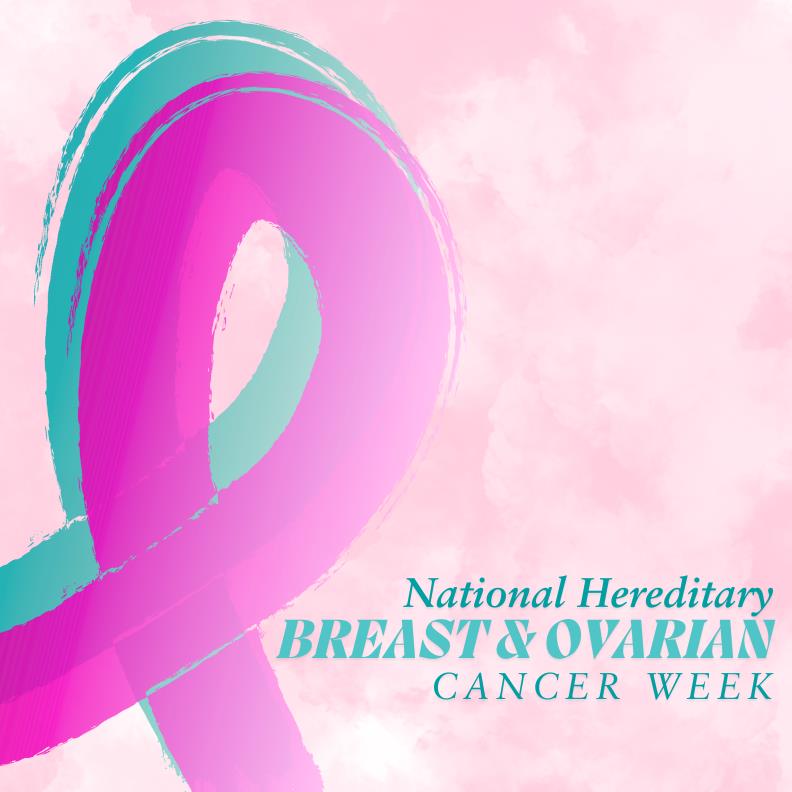While cancer itself can’t be passed down from parent to child, genetic mutations that increase the likelihood of developing certain cancers can be inherited. Mutations of the BRCA1 and BRCA2 genes are perhaps the most well-known, contributing to a higher risk of breast and ovarian cancer, but there are many other gene mutations that have been identified as risk factors for cancer.
According to the National Cancer Institute, approximately 5% to 10% of cancers are caused by hereditary genetic mutations. When individuals with these mutations are identified early through genetic testing, they can receive proactive screening for the malignancies associated with their genetic mutations or opt for preventive interventions that reduce their risk of developing cancer.
In honor of Hereditary Cancer Awareness Week, observed this year from September 29 to October 5, ACCC is highlighting 2 initiatives from its member programs that expanded genetic testing for hereditary cancers. Each program shared its workflows and outcomes in past editions of Oncology Issues, offering insights into how other institutions could implement similar programs.
Universal Testing for Breast Cancer
BRCA1/BRCA2 gene mutations may be the most common hereditary risk for breast cancer, but they are not the only implicated genes. When patients are newly diagnosed with breast cancer and offered only BRCA1/BRCA2 germline genetic testing, providers may miss another genetic cause that could inform treatment decisions or screening recommendations for family members.
St. Elizabeth Healthcare in Edgewood, Kentucky, offers universal germline testing to patients newly diagnosed with breast cancer. Referral to a genetic counselor occurs immediately upon diagnosis so tests can be run early enough to inform the treatment plan. The results of the genetic testing are disclosed to the patient in language appropriate for their health literacy, along with their surgical oncologist and the rest of the care team.
Based on an analysis of data from patient charts spanning August 2015 to August 2019, St. Elizabeth Healthcare found that only 18.6% of patients with a hereditary breast cancer had variants in BRCA1/BRCA2, while almost a quarter had variants in the gene CHEK2. Not only were BRCA1/BRCA2 mutations less common in this population than expected, there was another culprit that was even more common and would have gone undetected without universal genetic testing.
This study also found that 25.6% of patients with hereditary breast cancer had no family history of the disease. Often, patients are not offered genetic testing without some kind of family history or other indication that their disease might be among the 5% to 10% of cases caused by genetic variations. If St. Elizabeth Healthcare had not offered genetic testing to all patients diagnosed with breast cancer, these patients and their family members would likely go unidentified and without vital knowledge that could impact treatment or screening recommendations.
“The implementation of a universal testing protocol leads to the identification of a greater number of individuals with hereditary predisposition, allowing for optimal, well-informed treatment and prevention strategies that extend beyond patients to their at-risk relatives,” authors wrote in Oncology Issues. For more details on how St. Elizabeth Healthcare implemented universal germline genetic testing for newly diagnosed breast cancer patients as well as a deep dive into the data, read the full article.
Long-Term Model for Genetic Counseling
When patients are diagnosed with a hereditary cancer syndrome or other genetic predisposition to cancer, their long-term care often continues with the primary care provider or the physician who referred them to genetic counseling. While these providers play a critical role in coordinating overall health management, hereditary cancer care can require highly specialized knowledge in genetics, cancer prevention, and family risk assessment.
The Aurora Health Care Department of Genomic Medicine, part of Advocate Aurora in northern Illinois and eastern Wisconsin, developed a hereditary cancer center to better address the long-term needs of these patients. The center employs 11 genetic counselors and sees over 7500 new patients with cancer each year. It provides genetic testing to identify hereditary cancer syndromes, cascade testing for the family members of patients with positive tests, and follow-up appointments every 6 to 12 months to ensure care and screenings are up to date with each patient’s health status and current guidelines.
From May 2015 to December 2021, the hereditary cancer center identified 731 patients with genetic variations associated with a predisposition to cancer. Of those patients, 50% had already been diagnosed with cancer. The other 50% were alerted to their risk early and provided with appropriate cancer screenings and preventive options.
Cancer screenings recommended by Aurora Health Care’s genetic counselors resulted in 21 cancer diagnoses during this period. Most of these malignancies were diagnosed at stage I and none were diagnosed past stage II. These early diagnoses tend to be easier to treat and have a better prognosis, reducing cost of treatment, hardship for patients, and mortality.
The success of this program lies in the long-term approach to genetic counseling. By offering these services over a lifetime rather than only at the time of genetic testing, patients at the Aurora Health Care Department of Genomic Medicine receive care and recommendations that adapt to the ever-developing field of cancer genomics. Further details on the implementation of this program were published in Oncology Issues in 2023.
Hereditary Cancer Awareness Week serves as a powerful reminder of the importance of genetic testing in cancer prevention and early detection. As demonstrated by the initiatives at St. Elizabeth Healthcare and Aurora Health Care, expanding access to genetic counseling and testing can uncover hidden risks, inform treatment decisions, and ultimately save lives. By embracing a proactive and long-term approach to hereditary cancer care, oncology programs can empower patients and their families with knowledge that transforms outcomes and fosters a more personalized, preventive model of medicine.
Resources

